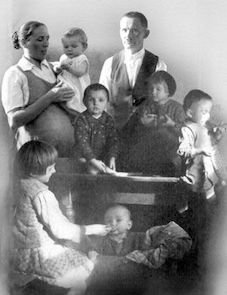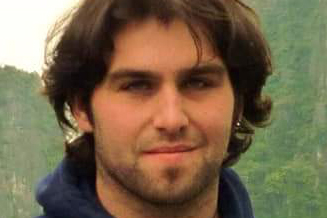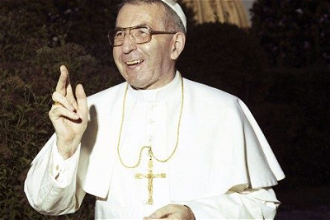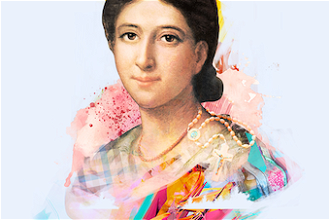Polish family killed for helping Jews in WW2 to be beatified

Ulma family Image: PCBC
Source: Vatican News/PCBC
A Polish family killed for sheltering Jews during World War II, is on the road to sainthood. Pope Francis has approved the recognition of the martyrdom of Józef and Viktoria Ulma and their seven children. During an audience on Saturday with the prefect of the Dicastery for the Causes of Saints, Cardinal Marcello Semeraro, Pope Francis also authorised decrees for lay Brazilian Franz de Castro Holzwarth who was killed during a prison riot; of the heroic virtues of Jesuit missionary Matteo Ricci. Decrees concerning ten Servants of God who will soon be beatified, and fourteen holy men and women recognized as Servants of God, were also issued.
Józef and Wiktoria Ulma and their seven children, were killed by the Nazis in 1944 for sheltering eight Jews. After Hitler's decision to implement the 'final solution' the Ulma family, aware of the dangers, hid a Jewish family for a year and a half before they were betrayed to the police. After killing members of the Jewish family the Nazis executed the Ulmas as a warning to others. Victoria was expecting a baby.
After the murder of the Ulmas - meant to strike fear into the hearts of villagers - their neighbours continued to hide Jewish fugitives until the end of World War II. At least 21 Polish Jews survived in Markowa during the occupation of Poland by Nazi Germany. They are regarded by the State of Israel as Righteous Among the Nations.
Franz de Castro Holzwarth was a layman who lived in 20th century Brazil. He worked as a lay chaplain in the the Jacareí prison. In February 1981, during violent riots in the prison, he served as a mediator in the negotiation with the police. He then freely and voluntarily gave himself up to the rioters as a substitute for a policeman who was being held hostage. The law enforcement forces, reneged on their agreements, opened fire on the detainees and Franz de Castro was killed in the shootout. He now becomes a Venerable.
Also among those soon to be beatified is Jacinto Vera, the first bishop of Montevideo, Uruguay, who lived in the 1800s. From a young age, he felt called to the priesthood. After his ordination in 1859 he became vicar apostolic and engaged in the formation of clergy and in pastoral care, for which he undertook major missionary journeys.
He also intervened as a mediator to resolve situations of conflict, including defending ecclesiastical jurisdiction against the government. Because of his stance, he was ordered into exile, which he spent in Buenos Aires from 1862 to 1863.
Elected bishop of Megara he resumed his pastoral work and traveled to Europe in search of missionaries for Uruguay. Returning to Montevideo in 1871, he made every effort to bring an end to the civil war. The peace achieved enabled him to give new impetus to missionary activity.
In 1875, Vera consecrated the country to the Sacred Heart of Jesus, and in 1878 was appointed the first bishop of the new diocese of Montevideo.
Health problems did not stop his apostolic zeal. He died in 1881 during a mission in Pan de Azúcar, aged 68.
The Holy Father also recognized the heroic virtues of Jesuit Father Matteo Ricci, acknowledged as one of the Church's great missionaries and known as the Apostle of China. While he is especially venerated in Asia, Ricci's fame and reputation for miracles have spread throughout the world. Fr Ricci spread the faith more through his holiness of life and charity toward all than through his words.
Pope Francis has repeatedly recalled the figure of Fr Ricci, who, he said, "was great not only for what he wrote, but because he was a man of encounters, a man of the culture of encounter; a man who went beyond being a foreigner and became a citizen of the world." Father Matteo Ricci, he said, was "among the first to establish a bridge of friendship between China and the West, implementing a still valid model of inculturation of the Christian message in the Chinese world."
The Holy Father also authorized the Dicastery for the Causes of Saints to promulgate Decrees concerning the heroic virtues of the following Servants of God:
- Ugo De Blasi, an Italian diocesan priest who died in 1982
- Alexander Woźny, a Polish diocesan priest who died in 1983 in Poznań
- Ignacy Posadzy, also a diocesan priest from Poland, Co-founder of the Society of Christ for Polish Emigrants and Founder of the Congregation of the Missionary Sisters of Christ the King for Polish Emigrants, who died in 1984 in Puszczykowo, Poland
- Martin Benedict, a professed priest of the Order of Friars Minor Conventual who died in Romania in 1986
- Joseph Mark Figueroa, a professed religious of the Society of Jesus, born in the second half of the 19th century in the Canary Islands, who died in Argentina in the 1940s;
- Miradio della Provvidenza di San Gaetano, foundress of the Congregation of the Poor Daughters of St Anthony, now Franciscan Religious of St Anthony, who died in Naples in 1926
- Maria Ignazia Isacchi, foundress of the Congregation of the Ursuline Sisters of the Sacred Heart of Asola, who died in Seriate, Italy, in 1934
- Margherita Crispi, foundress of the Congregation of the Oblate Sisters of Divine Love, who died in Rome in 1974
- Margherita Maria Guaini, foundress of the Congregation of the Missionary Sisters of Jesus Eternal Priest, who died in Varallo Sesia, Italy, in 1994
- Magdalena Aulina Saurina, foundress of the Secular Institute of Señoritas Operarias Parroquiales, who lived until the middle of the last century in Spain.
- Teresa Veronesi, professed nun of the Congregation of the Minim Sisters of Our Lady of Sorrows, who died in 1950 in Sant'Agata Bolognese, Italy.
- Luisa Guidotti Mistrali, consecrated laywoman of the Women's Medical Missions Association, who was shot by police in Zimbabwe in 1979.


















